Whenever I dream up a home improvement project for my place, I end up working smartest and fastest when I have the right tools at my disposal. It’s amazing the difference a good tool can make – and the extra time it takes to get work done without a helpful tool.
These tools are fast, free, and easy-to-use. I hope you find one or two (or twenty) you can put to good use, today.
1. Google PageSpeed Insights
Check the speed and usability of your site on multiple devices
Enter a URL, and this tool will test the loading time and performance for desktop and for mobile, plus identify opportunities to improve (and pat you on the back for what you’re doing well). The mobile results also come with a user experience score, grading areas like tap targets and font sizes.
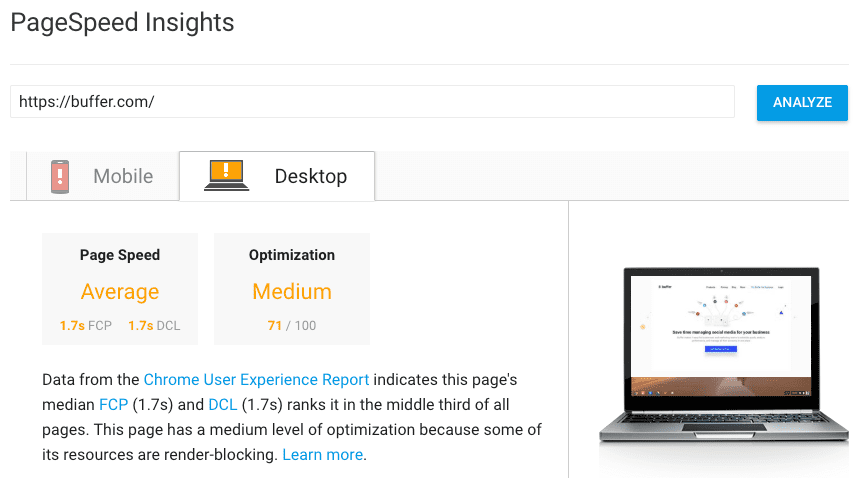
Alternatives: Pingdom, WebPageTest, and GTmetrix
2. Moz Local Listing Score
See how your local business looks online
Moz crunches data from more than 10 different sources—including Google, Yelp, and Facebook—to score your brick-and-mortar business on how it looks online. Results come complete with actionable fixes for inconsistent or incomplete listings.
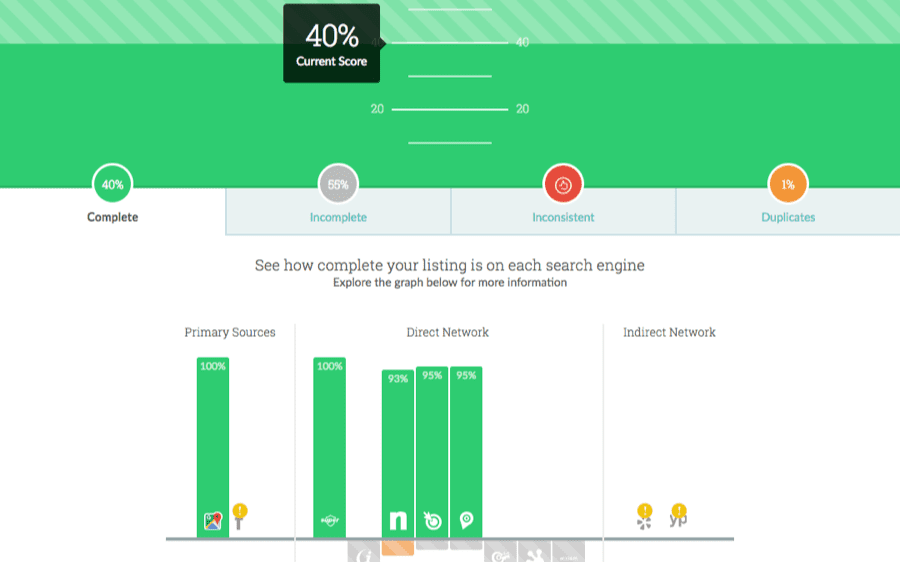
3. Keywordtool.io
Hundreds of keyword ideas based on a single keyword
Enter a keyword, and the Keyword Tool provides a huge handful of long-tail keyword opportunities and common questions asked.
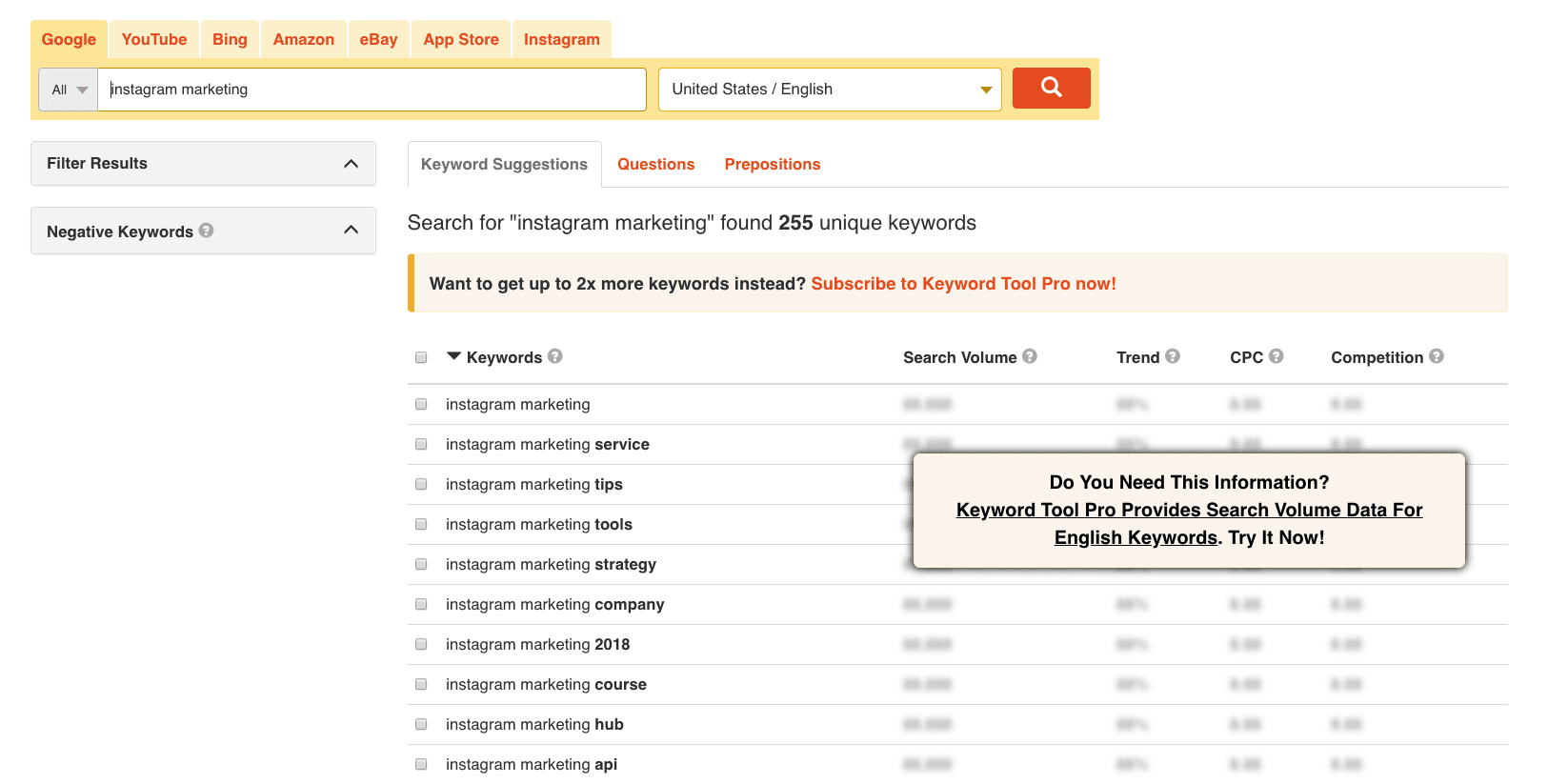
Alternative: Answer the Public, Ubersuggest
4. Google Analytics
Complete web stats and search insights
In addition to tracking pretty much every bit of traffic you could imagine on your website, Analytics also surfaces many keyword insights as to which terms people use to land on your pages.
You can get this data either under Acquisition > Search Console > Queries or Acquisition > Campaigns > Organic Keywords.
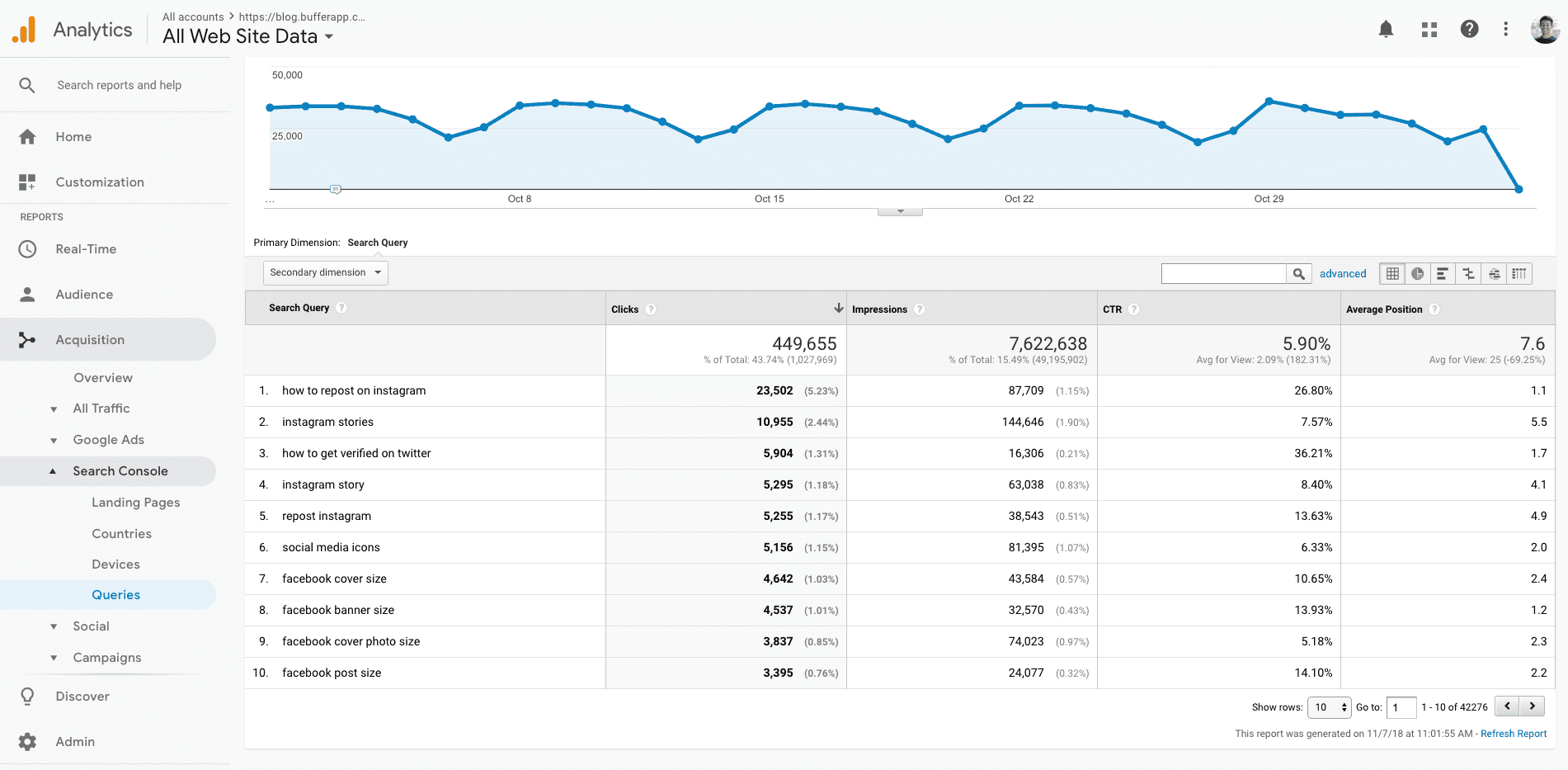
Alternative: Matomo, Open Web Analytics, and Clicky
5. Google Search Console + Bing Webmaster Tools
Constant website analysis, alerts, and error reports
These webmaster tools help give you a taste of what the two top search engines think of your site. It’s helpful to see any bugs, alerts, and indexing issues.
Pro tip: Each of these two tools requires a bit of installation on your site. If you’ve got a WordPress website, you can add the webmaster code automatically through a plugin like Jetpack or Yoast.

6. Ahrefs’ Backlink Checker
Comprehensive link analysis
The free version of Ahrefs’ Backlink Checker shows the top 100 backlinks to any website or URL, along with the total number of backlinks and referring domains (links from unique sites), Domain Rating (DR), and URL Rating (UR) where applicable.
Pro tip: Paste in a competitors website to find instant link opportunities.
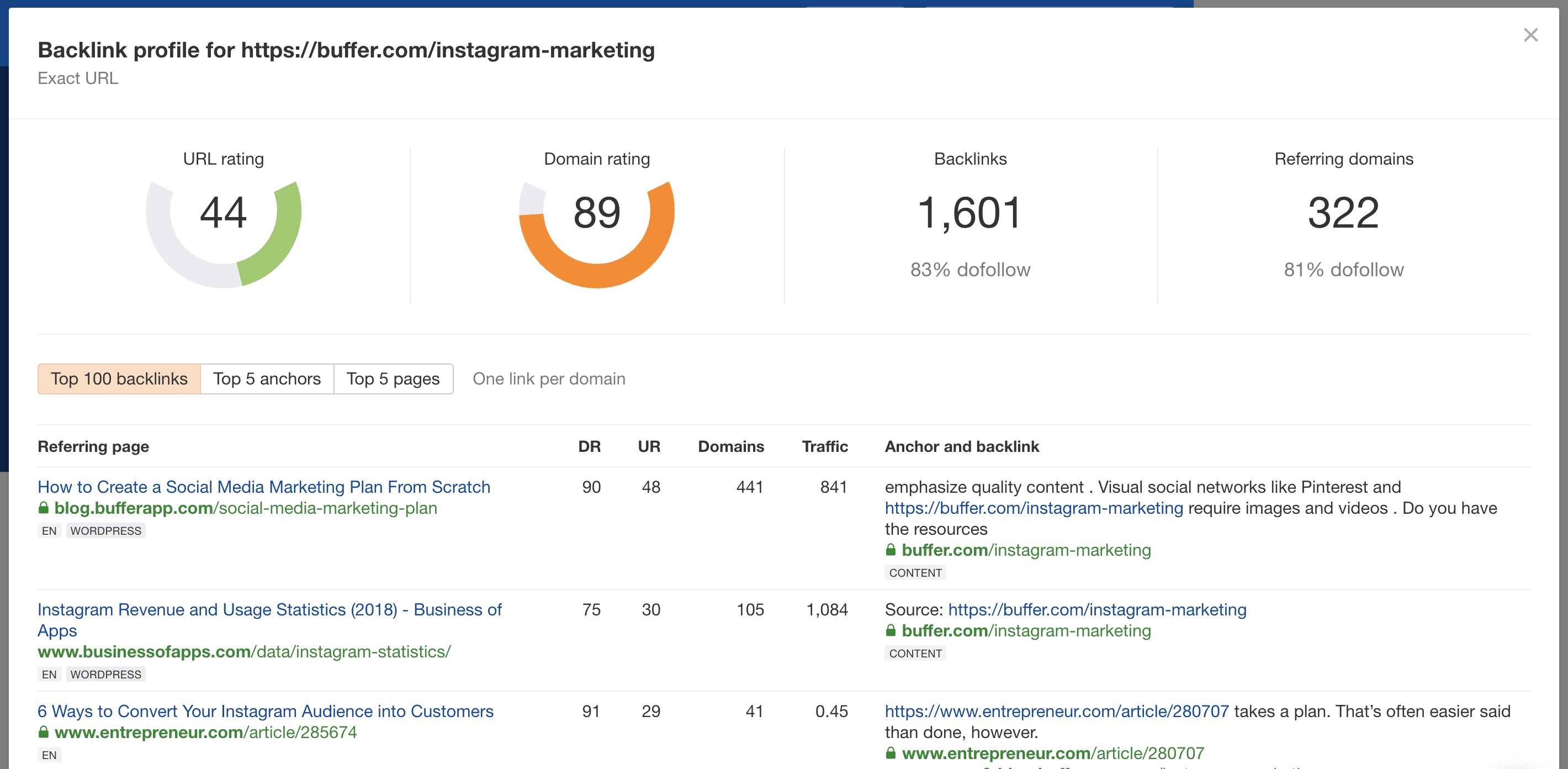
7. Moz Link Explorer
Complete overview of your website, pages, and links
The free version of Link Explorer gives you a quick look a full range of link analysis, including a look at the most impactful links coming your way and your most linked-to pages.
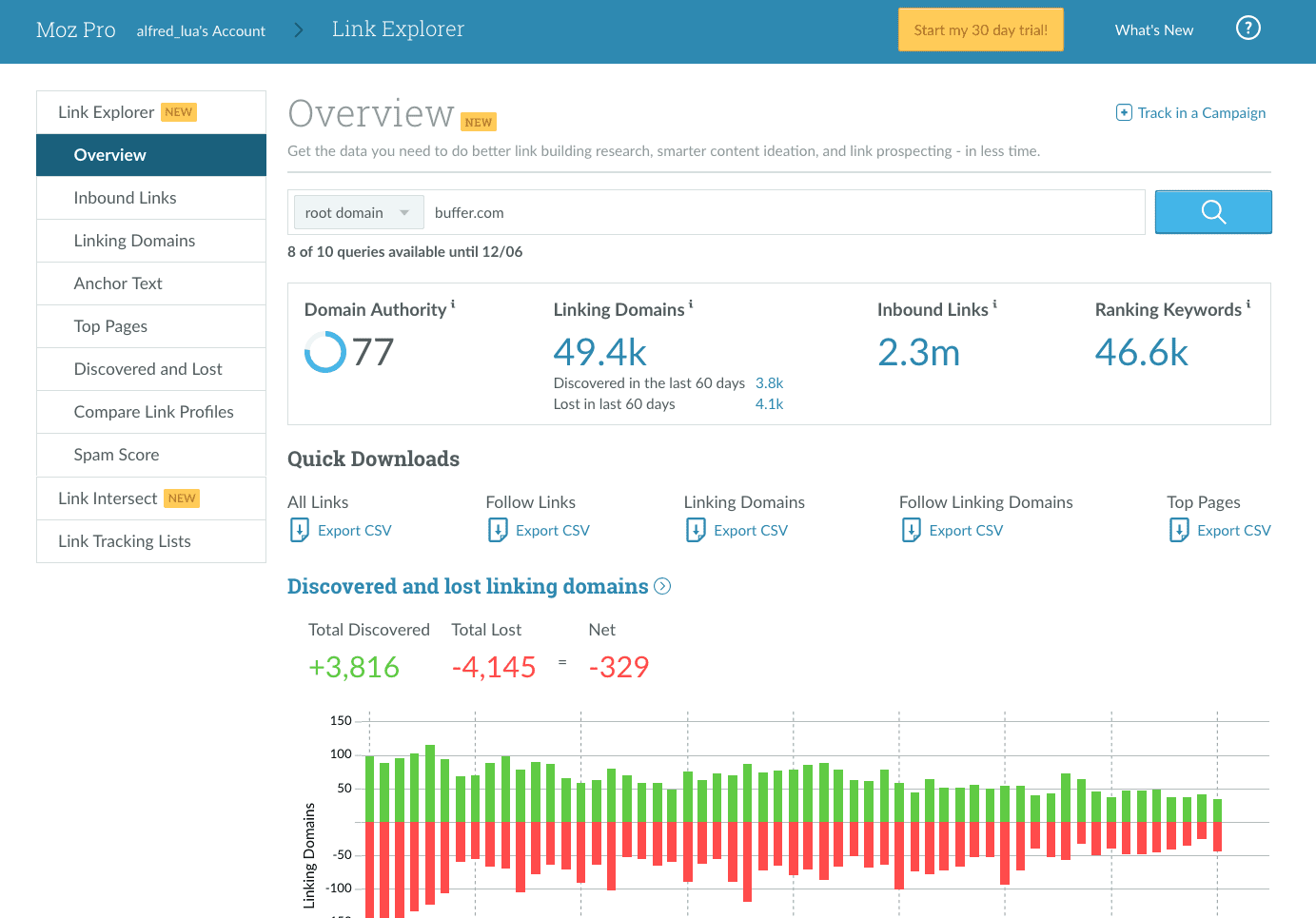
8. Google Keyword Planner
Know what people search for
Enter a keyword or group of keywords into the tool, and Google will return all sorts of helpful stats to guide your keyword strategy: monthly search volume, competition, and even suggested terms you might not have considered.
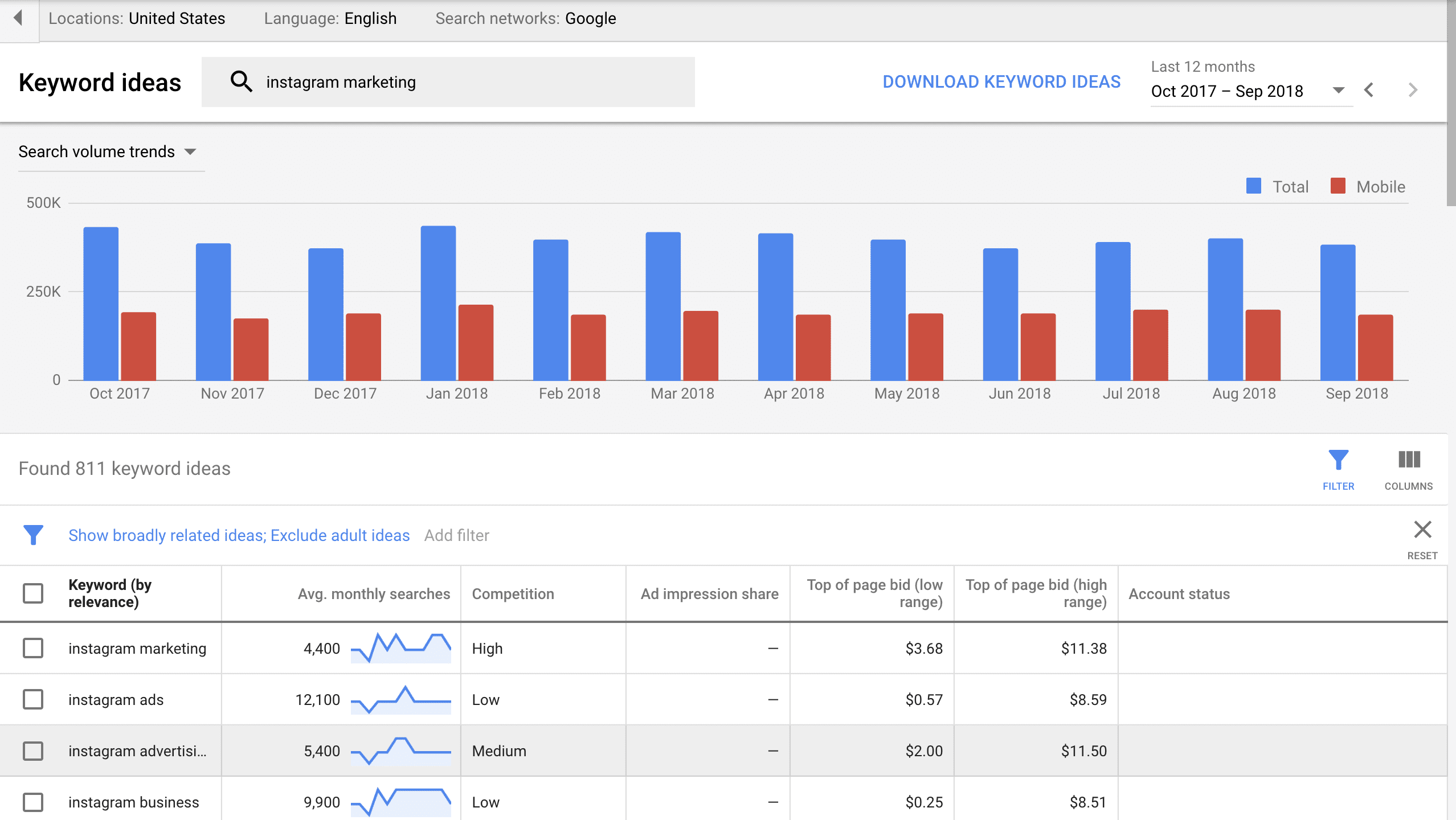
9. Google.com in an Incognito Window
Discover auto-fill opportunities
Searching Google.com in an incognito window will bring up that all-familiar list of autofill options, many of which can help guide your keyword research. The incognito ensures that any customized search data Google stores when you’re signed in gets left out. Incognito may also be helpful to see where you truly rank on a results page for a certain term.

10. Google Trends
See the relative search popularity of topics
Google Trends shows the popular search terms over time, which is useful for uncovering seasonal variations in search popularity amongst other things. Compare multiple terms to see the relative popularity.

11. Ahrefs SEO toolbar
Instant SEO metrics for web pages and Google searches
See how much traffic the current web page gets each month, how many keywords it ranks for, how many backlinks it has, and more. Also shows the search volume, CPC and difficulty of every keyword searched in Google.

12. SEO Web Page Analyzer
Get a full on-page analysis of your website
SEO Web Page Analyzer performs a comprehensive on-page analysis to uncovers issues like as missing image alt tags, heading structure errors, and page bloat.
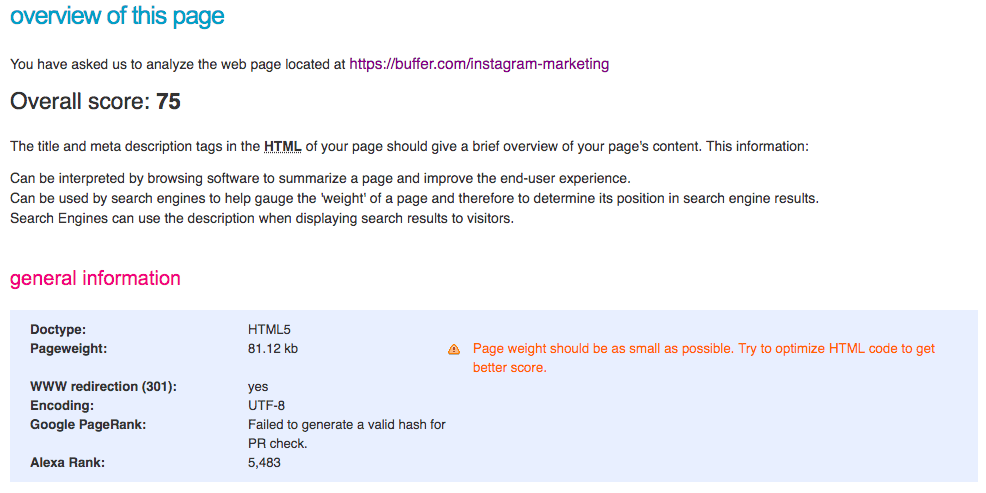
13. Schema Creator
Customize how your web pages appear in the search results
Create custom code so that your reviews, events, organizations, and people are displayed the way you want in Google’s search results. Once you’ve created your schema code, copy and paste into your website.
Here’s an example of Schema in action:

14. SimilarWeb
View site stats for any domain
Use this tool to estimate how much traffic a website gets. See a breakdown of traffic sources, locations, and more. A helpful tool for competitor research.
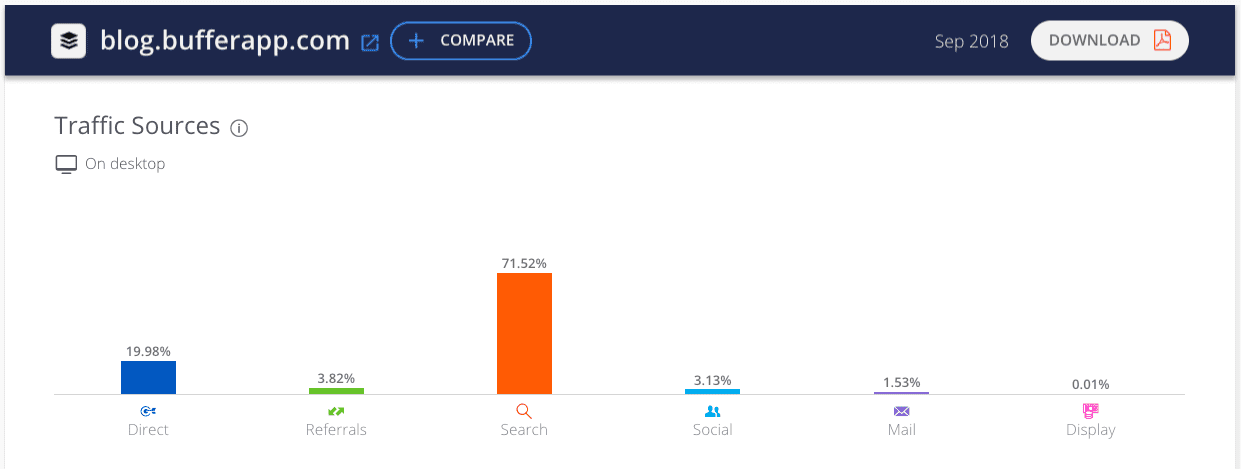
15. Browseo
See your website the way a search engine sees it
Enter your site, and this tool will strip out everything but the guts, revealing your website the way search spiders see it. This particular view can be helpful to see the hierarchy you’ve given particular elements (maybe without realizing it!).
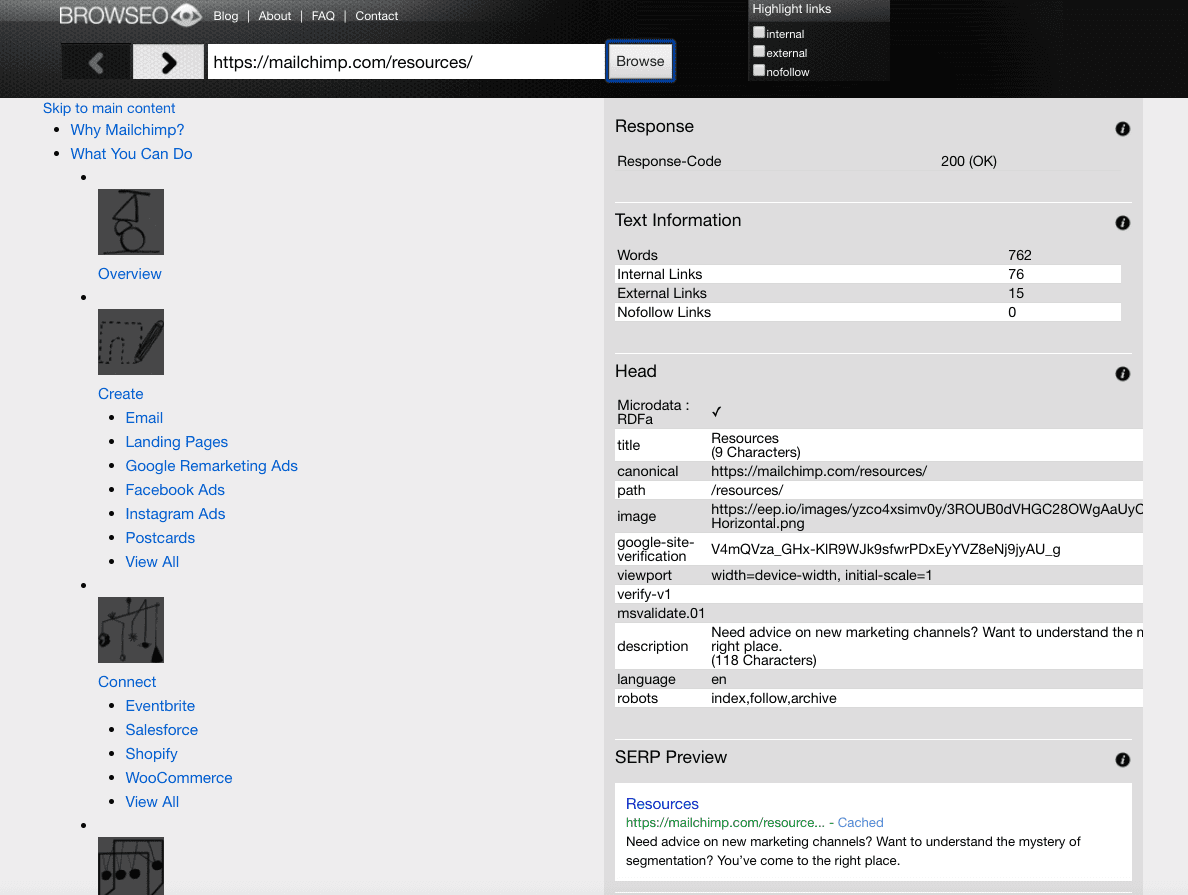
16. SEO Site Checkup
Audit your website for on-page and technical SEO issues
Site Checkup runs through a fast audit of your site, checking for proper tags and surfacing any errors that might come up.
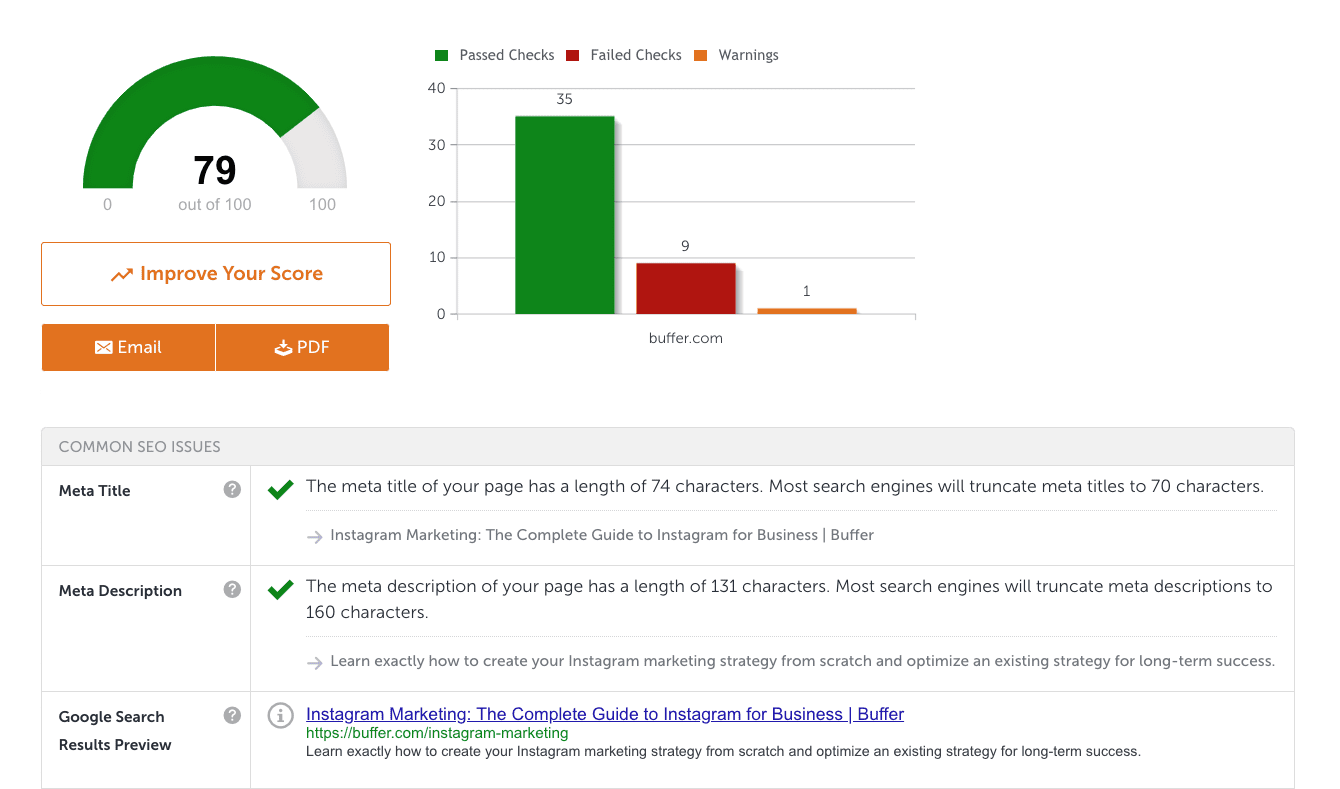
17. Yoast SEO
Suggestions for search engine optimizing your blog posts
Enter the main keyword for your blog post and Yoast SEO will suggest how to tweak your blog post to optimize it for search engines.
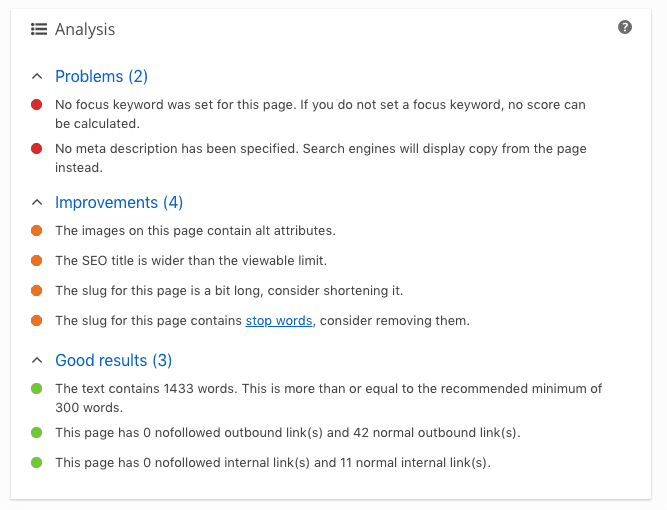
18. Google Business Review Link Generator
Create a link for customers to review your business on Google
Customer reviews are important for local SEO purposes. This tool allows you to create a shareable link for customers to review your business on Google.
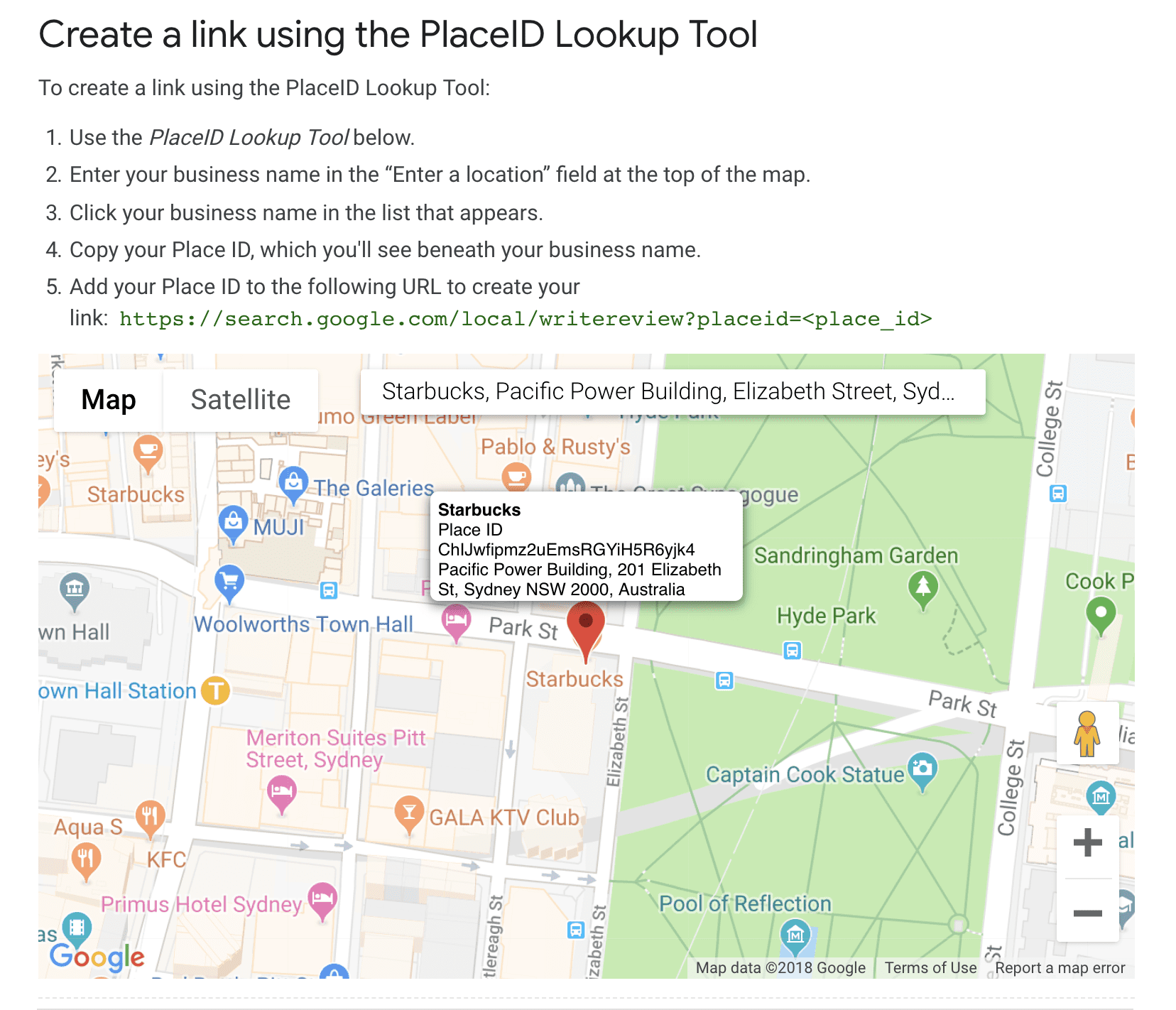
Further resources
Putting together a list of free SEO tools can be a daunting task. There are hundreds out there! I aimed to grab the ones that we’ve found valuable here at Buffer and the ones you can use via the web within minutes to get some amazing insights.
Which SEO tools are your favorite? Do you prefer web tools like these or browser plugins and spreadsheets?
I’d love to hear any tips you’re willing to share in the comments!
Read More: Free Marketing Tools


